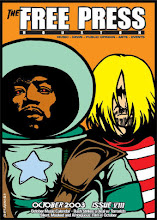La Danse

The Paris Opera Ballet Company gets the royal treatment in this lengthy but constantly fascinating documentary by Frederick Wiseman. La Danse - Le ballet de l'Opéra de Paris or La Danse for short places the viewer like a fly on the wall as we observe rehearsals, conferences with the artistic director, all the way up to finished performances.
Wiseman is an old school documentarian, at least in the sense that he's a contemporary of Albert and David Maysles and made his name in the 60s. Stylistic perhaps to a fault Wiseman lets the image unfold before our eyes without any explanation or voice over narration. But the chain of events are apparent, even when the camera shifts to the roof of the theater where the company's beekeeper is seen collecting honey. The reason we know that one woman is the artistic director is because she says this in the course of conversation. Likewise some of the rehearsals reveal familiar music that suggests what steps are being practiced but some of the best moments are from new music that accompanies bold dance moves.

Some of the dancers must be well known in some circles, that also is evident. These dancers are good enough that even warming up or going over a routine they look agile and worthy of study. The film culminates in a series of dress rehearsals, one dance in particular provokes with bloody imagery. Another more traditional dance leaves no doubt this is one of the best ballet troupes on the planet.
True enough the film just thrusts you into a world of athletic bodies in enclosed spaces without the least bit of explanation. By the end La Danse has won you over with spectacular moments. You feel as though you were in on the creative process, such is the method of Wiseman's mise en scene.









